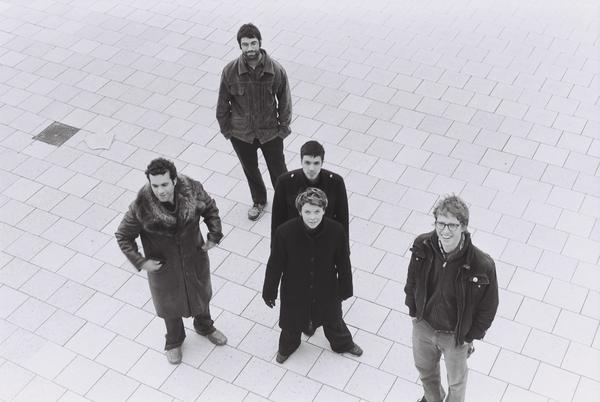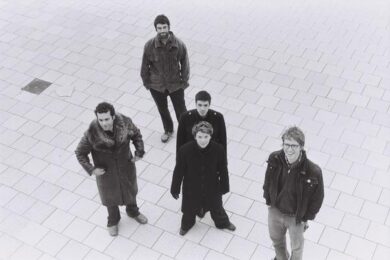Arcade Fire man Richard Parry has had his work cut out since 2003. Best known for his so-called ‘day job’ in Arcade Fire, he’s
nonetheless sustained orchestral and experimentalist musings with the Bell Orchestre, another Canadian collective whose second album, As Seen Through Windows, was released earlier this month on Arts and Crafts. The Quietus caught up with Parry on the phone from New York last week, where the Arcade Fire were recording the strings parts for some new tracks. More than that, we do not know – Richard doesn’t like to talk about Arcade Fire during Bell Orchestre interviews. No sir.
You’re in New York, right?
RP: I am yes, doing some recording in a studio – Arcade Fire stuff.
Well I was going to ask about that stuff anyway, do you want to start with that or the Bell Orchestre stuff?
RP: Let’s start with the Bell Orchestre stuff seeing as this is a Bell Orchestre interview.
Sure. What was the process and locations for recording As Seen Through Windows?
RP: It was recorded and written all over the place – some was written in Montreal, some in Banff at the arts centre, and some was written in the woods to the west of Montreal. And then we recorded it in Chicago and Montreal.
How do you go about making music together?
RP: We’re all used to making music together, but I’m the de facto musical director, I try to push it in a lot of different directions. We do a lot of group improvisation and we kind of record everything we do so there’s always music sitting there. We have a lengthy and sometimes arduous process going back over what we’ve recorded and shaping it into compositions that stand up on their own.
How much production goes into it – do you add stuff afterwards?
RP: Yeah, for sure, we do whatever we can to get it the way we want. We don’t have a jazz approach or anything where it’s just in one go.
Is it okay with you that people might see this as classical chamber music?
RP: It’s definitely got a foot in that, but then it’s still got a foot in experimental music as well, it terms of volumes, texture, use of drums. But yeah, it absolutely has a foot in that when we play together.
It’s interesting that you don’t have lyrics – are there still certain things you’re trying to convey even without lyrics to direct people?
RP: Sometimes yes, sometimes no. It’s kind of what I love about this music actually, it isn’t about really specific things all the time. It leaves a lot up to imagination but it infuses the imagination a lot.
Did you have to sideline some of this stuff when Arcade Fire took off?
RP: Yeah, for sure. You don’t plan for these things, you just take it as it comes. It’s a little crazy for sure, I’m not good at saying no to things that I’m excited about and I can dig myself into some holes sometimes. But at the end of the day it’s important to me to do these things.
So in Arcade Fire do other people take more of a lead in terms of writing?
RP: Sure, yeah, Win is definitely the main songwriter, but we all
contribute a lot, it’s a very involved group project. Me personally, I have always been multi-faceted musically, and it just so happened that the rock band I was in turned into the thing for me, turned into my day job and the thing that people know me from, whereas there are loads of other musical things that I’m involved in that are part of the tapestry of my artistic life.
That’s an interesting way to put it: your day job.
RP: It gets to the point where you’re putting all your time into it and you’re spending the most part of your year touring: that’s a day job whether you like it or not. That’s where you’re making your bread and butter.
And the Bell Orchestre is where your passions lie?
RP: It’s all passions, the Arcade Fire’s still passions, but one of them becomes the main thing.
And that’s why you’re in New York at the minute?
RP: Yeah, recording some strings for some new songs.
For a new album?
RP: Just some songs.
Is there a release date for this or anything?
RP: No. No, no, no.
Are there any plans to tour?
RP: Not for the foreseeable future.



